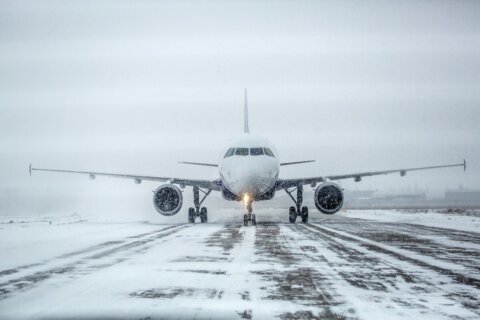For travelers, few moments are more tedious than waiting at an airport. Missed connections, canceled flights and overbooked planes result in packs of passengers wandering aimlessly to combat the endless ennui of waiting. Thanks to the proliferation of airport restaurants, retailers and service providers, waiting often turns into spending on everything from greasy hamburgers to souvenir sweatshirts. In 2015, revenue from “concessions” at 92 airports in the U.S. and Canada — including food and beverage, retail and services — reached $1.9 billion, according to the Concessions Benchmarking Survey from the Airports Council International-North America, also called the ACI-NA.
Travelers are the very definition of a “captive audience,” and airport retailers and restaurants are profiting mightily from their misery. When you’re stuck at the airport for hours due to a delay or cancellation, it’s easy to find yourself justifying marked-up snacks, beverages, souvenirs and reading material. With a little preparation, however, you can avoid wasting your money on the following worst items to buy in airports.
[See: 12 Frugal Ways to Save on Vacation.]
Bottled water. The last thing you should buy at an airport is often the most commonly purchased item. Flying is dehydrating, and you can’t bring liquids larger than 3.4 ounces through security, so many travelers pick up a bottle of water on the way to their gate for $2.50 to $5, depending on where they’re departing.
Avoid this expense by packing an empty water bottle to fill up at your terminal after you pass through security. Consider storing an aluminum or light-weight reusable water bottle in your luggage at all times, so you’re reminded to put it in your carry-on when it’s time to pack. In addition to saving you money at the airport, a reusable water bottle can save you money at your destination.
[See: 10 Fun, Frugal Ways to Spend Your Free Time.]
Snacks. Like bottled water, snacks are a poor purchase choice from the airport since you can easily pack items from home. A candy bar that costs you $2 at an airport costs less than $1 at most grocery stores, while the $6 bag of trail mix you can purchase on the plane is priced at 50 percent less per ounce at the store.
Plane-friendly snacks include nuts, crackers, cheese, popcorn, cookies, fresh and dried fruits and more. A small Tupperware container with compartments makes for an ideal food storage container since you can pack a variety of snacks in one unit. Whatever you pack will be more satisfying to your palette and your wallet than the highly processed snacks sold in airports and on planes.
Travel accessories. Neck pillows, pricey headphones and other travel accessories may be tempting to those stuck at an airport or finding themselves without travel comforts. Resist the urge to buy these items in the terminal since you can take advantage of deals and better prices online or at physical retailers. Instead, ask the flight attendant for a cheap pair of headphones. Some airlines give them out for free while others charge $2, which is far less than paying a 30 percent markup for nicer headphones at the airport. Roll up a jacket, scarf or sweater to serve as a pillow during longer flights and make a note to purchase a pillow suitable for travel before your next trip.
[Read: Vacation Ideas That Save You Money.]
Parking. Parking and ground transportation represented 40.6 percent of non-aeronautical revenue in North American airports in 2015, according to the ACI-NA. That’s more than double the amount airports earned from concessions.
With services such as Uber and Lyft, it’s often more cost-effective to arrange transport to the airport than to drive and park. Uber’s website says it offers pickup and drop-off service to more than 300 airports around the world, including such top U.S. hubs as Chicago O’Hare, Dallas-Fort Worth, Denver International and LaGuardia airports.
Public transportation is another affordable option for cities that offer it. Otherwise, ask for a ride from a friend or family member. Offer to pay for gas or to drive them to the airport the next time they need to catch a flight.
Currency. A credit card with low or no foreign transaction fees is your best bet when traveling to plastic-friendly destinations. If you’re traveling to a country that uses mostly cash, avoid exchanging currency at the airport if you can. Your bank or credit union offers more favorable exchange rates and low fees while airports will charge a premium for both since travelers typically don’t have other options.
More from U.S. News
10 Frugal Activities to Get You Out of the House This Winter
10 Offbeat Ways to Earn Extra Money
10 Money Mistakes New Grads Make
5 Items You Should Avoid Buying at the Airport originally appeared on usnews.com







